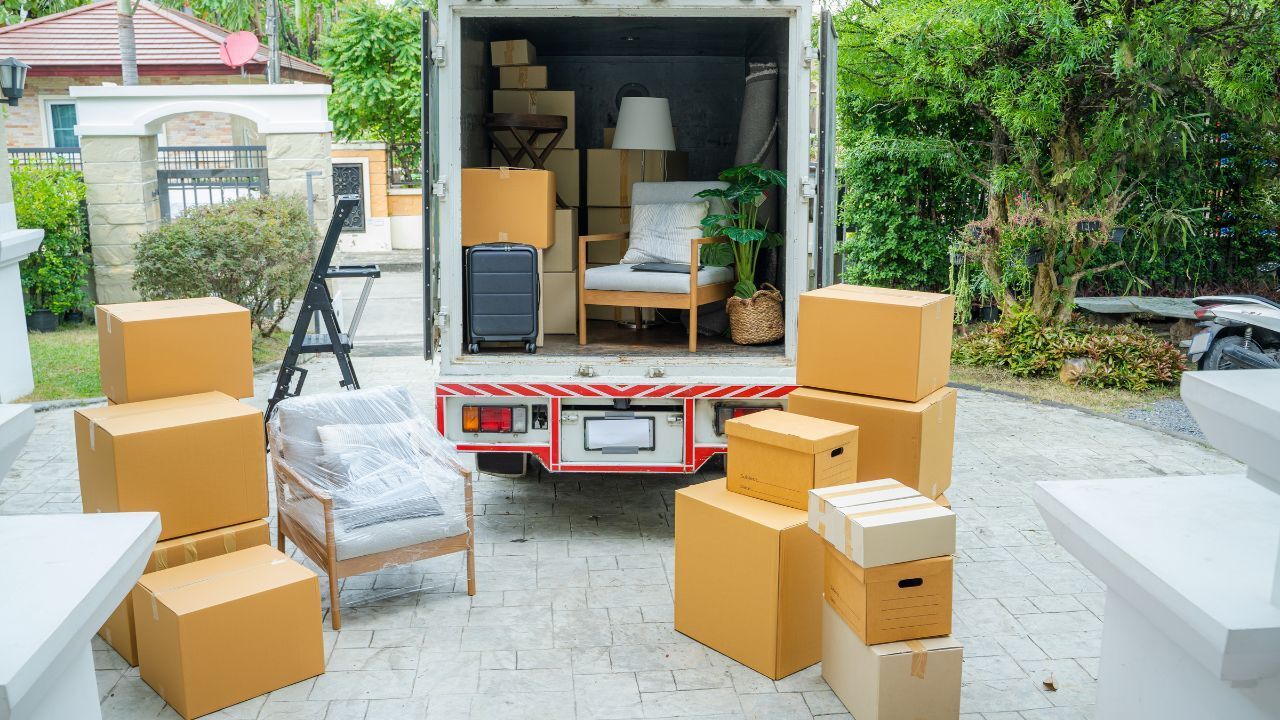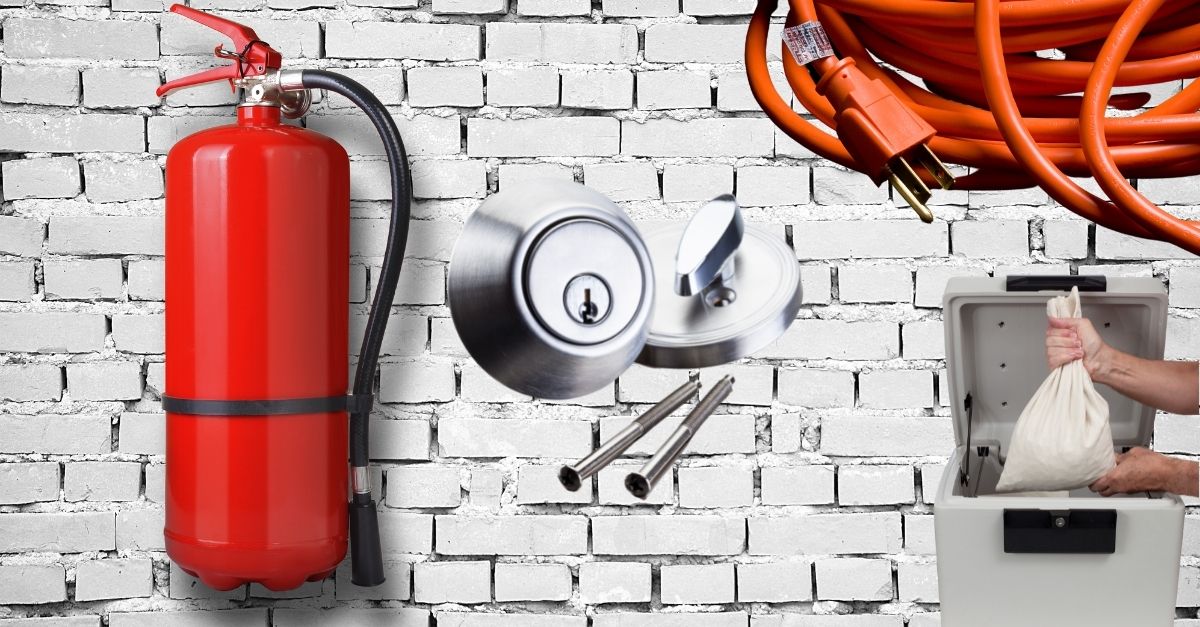 Moving into a new home is exciting, but it can also come with unexpected expenses that quickly add up. Between packing supplies, transportation, and time off work, costs can spiral before you even settle in. But with a bit of planning and resourcefulness, you can cut down on unnecessary spending and keep more cash in your pocket.
Moving into a new home is exciting, but it can also come with unexpected expenses that quickly add up. Between packing supplies, transportation, and time off work, costs can spiral before you even settle in. But with a bit of planning and resourcefulness, you can cut down on unnecessary spending and keep more cash in your pocket.
Plan Ahead and Get Creative
The key to saving money during a move is preparation. Start gathering your moving supplies weeks in advance. The closer you get to moving day, the more likely you are to overspend in a panic.
Save Money on Boxes
Boxes may seem like a minor expense, until you realize you need dozens of them. Buying brand-new moving boxes from a store or moving company can cost $2 to $5 each. Multiply that by 30 or 40, and you have spent a small fortune just on cardboard.
Here’s how to get boxes without blowing your budget:
- Check Craigslist or Facebook Marketplace: Many people offer gently used moving boxes for free or cheap. They’ll often be happy to let them go just to free up space.
- Look on eBay: Some sellers offer bulk moving boxes at discounted prices. Just be sure to account for shipping before checking out.
- Ask local stores: Grocery stores, liquor stores, and big-box retailers regularly receive shipments and may have sturdy boxes available. Just ask a manager if they can set some aside for you.
Save on Packing Materials
Professional movers offer packing services, but they come at a premium. Labor, materials, and time all factor into the cost, and it can add hundreds to your final bill.
Instead, do the packing yourself and use items you already have:
- Use newspaper for breakables like dishes, mugs, and wine glasses.
- Wrap items with soft belongings such as towels, blankets, and T-shirts.
- Use socks to fill gaps in boxes or cushion fragile items, just as effective as packing peanuts, and they’re already paid for.
Save on Transportation
Renting a moving van or hiring movers is often the biggest cost. Before committing, check with friends and family first. Someone may have a truck or trailer you can borrow or rent at a much lower rate than a commercial service.
Offer to pay for their gas or treat them to lunch, it will still be a fraction of the cost of a rental.
By planning ahead and being a little thrifty, you can cut moving costs significantly and reduce stress. Every dollar saved on moving is a dollar you can put toward making your new home feel like home.
Are you ready to start your next chapter? We can help you find the perfect home that fits your budget, lifestyle, and goals. Call today to begin the journey!
 Moving to a new home can be an exciting adventure, especially for families. However, for children, it can also bring a mix of emotions. As a parent, you play a crucial role in helping your kids transition smoothly. Here are some strategies to prepare your children for the big move while also navigating the process effectively.
Moving to a new home can be an exciting adventure, especially for families. However, for children, it can also bring a mix of emotions. As a parent, you play a crucial role in helping your kids transition smoothly. Here are some strategies to prepare your children for the big move while also navigating the process effectively. Moving to a new home is an exciting milestone, but in the middle of packing boxes and planning logistics, the task of transferring utilities often slips through the cracks. Skipping this essential step can lead to unwanted stress, unexpected service interruptions, and even extra charges. To help you avoid those issues, here’s a guide on transferring your utilities without a hitch during a move.
Moving to a new home is an exciting milestone, but in the middle of packing boxes and planning logistics, the task of transferring utilities often slips through the cracks. Skipping this essential step can lead to unwanted stress, unexpected service interruptions, and even extra charges. To help you avoid those issues, here’s a guide on transferring your utilities without a hitch during a move. If you have purchased a new home and are going to move in soon, what are the first few things that you will need to do upon moving into your new home?
If you have purchased a new home and are going to move in soon, what are the first few things that you will need to do upon moving into your new home? One of the stresses of moving to a new area is giving up the familiarity that you have with your old neighbors and starting from scratch. Whether you’ve just moved to a different locale or you’re planning to relocate in the near future, there are some easy ways that you can make a home of your new neighborhood right from the start.
One of the stresses of moving to a new area is giving up the familiarity that you have with your old neighbors and starting from scratch. Whether you’ve just moved to a different locale or you’re planning to relocate in the near future, there are some easy ways that you can make a home of your new neighborhood right from the start. If you have recently purchased a home, you are probably excited to move into your new house; however, the moving process can be stressful. There are a few important tips you need to keep in mind if you are moving soon. Make sure to plan ahead, as there are several ways to save time and money.
If you have recently purchased a home, you are probably excited to move into your new house; however, the moving process can be stressful. There are a few important tips you need to keep in mind if you are moving soon. Make sure to plan ahead, as there are several ways to save time and money. Starter homes are incredibly popular for young couples who plan to have a family in the future but don’t need a large place yet.
Starter homes are incredibly popular for young couples who plan to have a family in the future but don’t need a large place yet. If you’re moving from a large home into a smaller house or condo, you’re probably looking forward to enjoying a lower utility bill and not having to do as much cleaning. But before you move, you’ll want to take certain precautions to ensure that you’re not overwhelmed.
If you’re moving from a large home into a smaller house or condo, you’re probably looking forward to enjoying a lower utility bill and not having to do as much cleaning. But before you move, you’ll want to take certain precautions to ensure that you’re not overwhelmed. Many people make the decision to move from the country or the suburbs into the heart of the downtown area for a number of reasons, such as to enjoy proximity to work or to enjoy the urban lifestyle. With the higher cost of real estate in central urban areas and with real estate space at a premium, many who make the decision to relocate will need to downsize from a larger house to a smaller condo or apartment. While this can be challenging, it can be accomplished by following a few steps.
Many people make the decision to move from the country or the suburbs into the heart of the downtown area for a number of reasons, such as to enjoy proximity to work or to enjoy the urban lifestyle. With the higher cost of real estate in central urban areas and with real estate space at a premium, many who make the decision to relocate will need to downsize from a larger house to a smaller condo or apartment. While this can be challenging, it can be accomplished by following a few steps. Moving into your first home is an exciting experience, but it can also be overwhelming. To manage the move properly, you need a wide variety of tools you may never have considered before. You may not realize you should have purchased a certain item until you need it.
Moving into your first home is an exciting experience, but it can also be overwhelming. To manage the move properly, you need a wide variety of tools you may never have considered before. You may not realize you should have purchased a certain item until you need it.